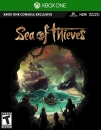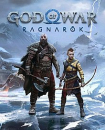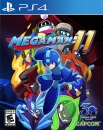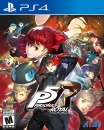Otter said:
freebs2 said:
Long post.
For most AAA publishers (incl. Sony), the core value proposition of a new game in 80-90% of cases can be narrowed down to novelty: new story, a larger scope compared to the previous entries (meaning a larger world or new systems being added on top of pre-existing ones), graphical and technological advancements compared to previous entries.
Novelty has naturally a very high value at launch, but then it will degrade quite quickly because other developers will introduce other new games with even grater scope and with even more technological advancements. Even considering two entries in the same series and from the same developer, the the sequel in most cases will offer better production values, meaning the previous entry becomes obsolete in comparison. In this sense discounts reflects the game being outdated.
Also, form a publisher perspective, selling an old game in a bargain bin means giving it more exposure and by extension meaning more people are likley to buy its "shiny" new full-priced sequel. It's a marketing investment to a certain degree.
For Nintendo, their core strategy is trying to create a unique value proposition with each new game . This means with each game must posses some differentiating feature to set it apart from both other games in the market and also form its previous entries and sequels. You can see this very clearly looking at mainline 3D Mario and Zelda series, each game is market with a particular theme and a particular gameplay style.
Zelda example: Wind Waker (waterworld; saling / sea charting); Twilight Princess (wilight word; switch dimension / metamorphosis); Breath Of The Wild (open air; free exploration).
Mario: if Nintendo operated like any other publisher Sunshine would have been a Mario64-2 kind of game with the same core concepts, new larger levels, some additonal features and better graphics. Instead Sunshine is a game with a very specific theme (tropical island) and a very specific playstile (fludd water spray and jetpack) and those elements weren't replicated in sequels.
This is the reason why they don't drop prices quickly, since "uiniqueness" is much harder to degrade of over time. Since there are no other similar experiences in the market to this day (form both other devs and Nintendo itself) a game like Mario Sunshine or Mario Galaxy remain equivalent to a new game for a person who hasn't played them.
Counter example. Take Uncharted 2; the only element of the game that remains truly unique of the experience to this day is the story. Any other element of its core design has been reproduced and improved over the years by both Naughty Dog and other developers as well. To a new player it's not a fresh experience anymore.
To be clear, I'm not saying Nintendo's strategy is good and the other is wrong. They are just different and each have their own advantages/disadvantages.
|
I hear your logic here but I disagree with it being the reason for difference in legs and/or prices. Beyond natural gameplay and graphical evolution what is the differentiating factor between Mario Kart Wii and Mario Kart 8, or NSMBWii versus NSMBU deluxe, Or Smash Bros Brawl vs Ultimate? These are the titles that would pull the biggest numbers historically.
The reality is there are so few cases where Nintendo will actually have sequels on the same platform that this argument cannot really be made as you intend to make it. Scarcity is what creates the value, when Nintendo do create sequels on the same platform we've seen they perform worse. Mario Galaxy 2 didn't make Galaxy 1 enter the bargin bin, but it did sell notably less then the first. Same with Ocarina > Majora, Twlight Princess > Skyward Sword and I'm sure we'll see it with BOTW vs BOTW2. The notion of scarcity has to also be tied to the fact that we're talking about 8 or so titles per generation when discussing Nintendo's longevity. The vast majority of their output simply does not sell high volumes beyond its release year regardless of how unqiue they are, and would absolutely be receiving price cuts if handled by another publisher. For example from last year Luigi's Mansion 3, Astral Chain, Links Awakening, Fire Emblem, .. but they are all still full price despite significantly slowed global sales.
Also worth noting that BOTW and Odyssey sales are not normal for either franchise. Per platform Zelda has always been under 10m peaking with Twlight princess Wii (8.5m) and Mario only ever passed above 10m with Galaxy 1 (11m) and 3D World on 3DS (12m). So a really interesting discussion would be what caused those sales to explode this generation. Equally what is it about Nintendo's other ever greens (mostly multiplayer bar 2D Mario) that causes them to excel where their genre peers struggle? I think the answer may actually just be brand recognition (particularly anything with mario in it) + seal of quality.
|
I partially agree, in a sense that scarcity plays a key role as well, but it's still part of their overarching strategy of creating unique selling propositions. That said, I also agree it doesn't apply to every game made by them in 100% of cases, but simply because with some games they don't need to to reach their goal.
I'll comment your counter examples. With Mario Kart I disagree, each entry in the series has its distincive feature to set it apart and also they change drastically the handling with each entry to the point each games feels different: for double dash the "uinque" factor is the two-player kart setup, for Mario Kart Wii it's the motion controlled based handling, Mario Kart 7 added the paraglider and areal sections, in Mario Kart 8 it's the course design with gravity inversions. Also just look at Mario Kart Home Circuit, another example of a game based on a unique proposition.
I agree on the other hand you don't see that kind of effort to reinvent the wheel with games like 2D Mario, Smash Bros (you can also add Pokemon), but in that case the "unique" factor is granted already by the fact that there isn't really any other game to compete directly with them on the market. You may call it "brand recognition" and to some exent I could agree but it's more than that...every element of 2D Mario's gameplay is so iconic that you could consider it a part of the brand per se. In other words, imagine seeing a golden block in mid air with a question mark in a completely urelated context (say in an Assasin's Creed game) or a spinning turtle shell. You would automatically have an expectation to how interact with them although contextually it wouldn't make any sense. That's to say that those games are already so unique and recognizable they don't need to reinvent them every time.
As for the argument of games like Luigi's Mansion 3, Astral Chain, Links Awakening, Fire Emblem, .. I've never said they don't drop prices because all games sell regardless, but rather because they want to sustain the proposition of those games as "unique game experiences" even at the cost of selling less copies, because that way they can re-purpose those game even years after they were originally released. See the 3D Mario All-Star collection...three old games re-released with little to none technical improvements, still sold for full price. Since you're mentioning them Links Awakening is a remake of a 25 years old games, full price; Fire Emblem Shadow Dragon, a localization of a 30 years old game -> special edition, full price. etc. etc.
Last edited by freebs2 - on 01 November 2020


































































